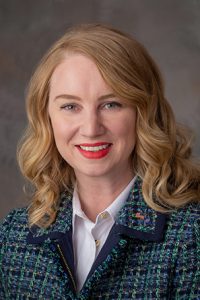Veto of syringe services programs sustained
An attempt to override the governor’s veto of a bill allowing local jurisdictions to implement Syringe Services Programs fell short March 12.

LB307, introduced by Omaha Sen. Megan Hunt, would have provided legal immunity to public and behavioral health programs, pharmacies and employees from drug paraphernalia offenses when implementing or participating in a program that provides safe use and disposal of syringes.
Under the bill, political subdivisions could have voluntarily established SSPs. Programs would have been required to satisfy minimum requirements, such as providing information on naloxone and referrals for mental health and other social services. Additionally, approved programs would not have been permitted to operate within 500 feet of a child care program, school or youth center or a public library, community center or swimming pool.
Lawmakers passed LB307 on a 30-7 vote Feb. 29. The bill subsequently was vetoed by Gov. Jim Pillen.
In his March 4 veto letter, Pillen said SSPs are not a proven remedy in reducing drug use or the spread of disease when compared to other means. In addition, he said, such programs have led to increased drug deaths in areas where they have been implemented and could expose citizens to health and safety risks due to improperly disposed needles.
Hunt filed a motion to override the veto. She said the governor’s veto letter contained “misinformation” and was inconsistent with the expertise of health professionals from the University of Nebraska Medical Center and Dr. Jerome Adams, who served as the U.S. Surgeon General under former President Donald Trump and is a proponent of SSPs.
Sustaining the veto also would diminish local control by preventing municipalities from implementing SSPs at a time when Nebraska is experiencing an increase in the spread of diseases linked to the sharing of needles, she said.
“Nebraska is one of the only states that has seen a rise in HIV and hepatitis C when the rest of the country is going down,” Hunt said. “So what are we going to do about that?”
La Vista Sen. John Arch supported the override motion, saying SSPs are a harm reduction method that is part of a more significant effort to curb drug use and the spread of disease. He said SSPs are the best chance to connect individuals with professionals who can help them access treatment.
“Getting these folks who have this addiction in front of people who can refer [them] is what the SSP program is all about,” Arch said. “That’s why 45 other states are doing this.”
Omaha Sen. Kathleen Kauth opposed the motion to override the veto and expressed concern that SSPs could incentivize addiction instead of treating it by providing people with clean needles.
“I think encouraging and enabling addictive behaviors is a step too far in the wrong direction,” she said.
Hunt’s motion to override the veto failed 27-20, three votes short of the number required.


